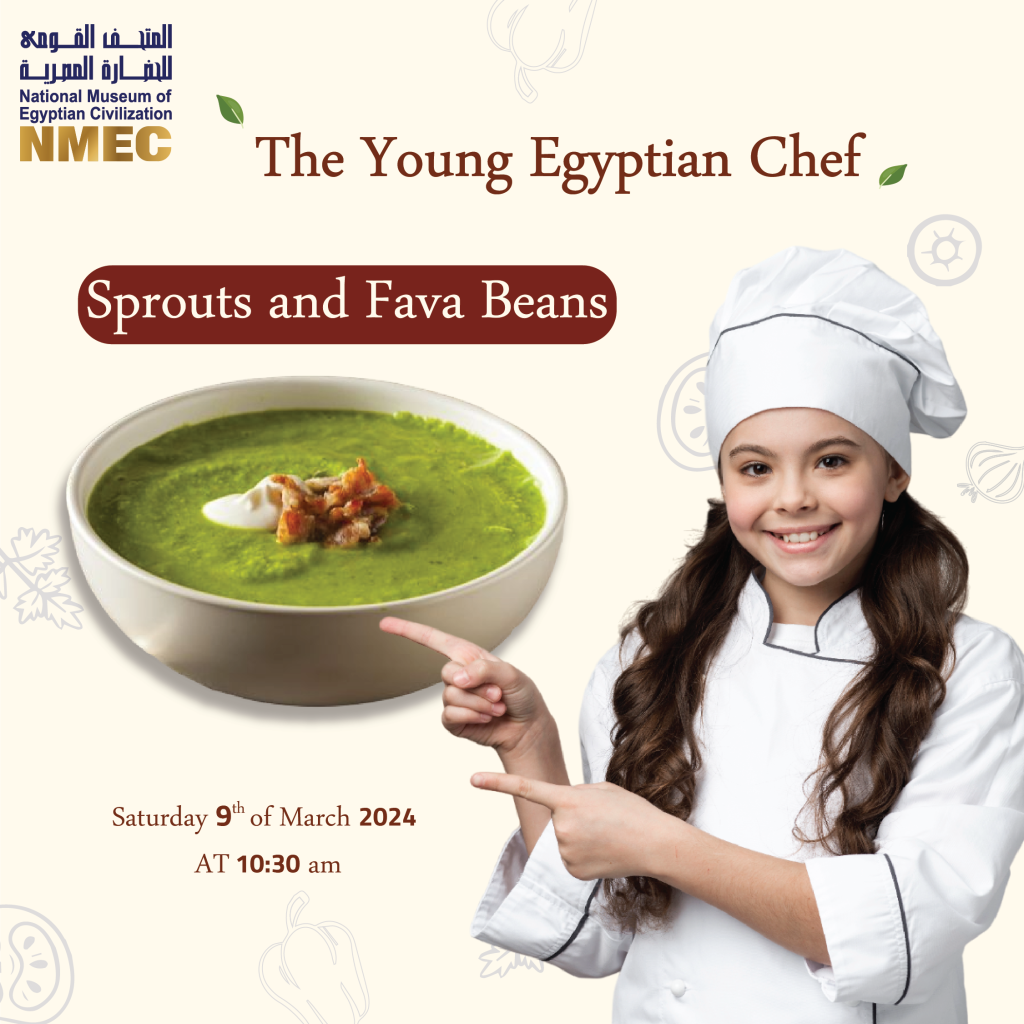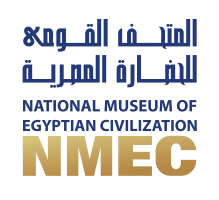Tabliet Misr 2024
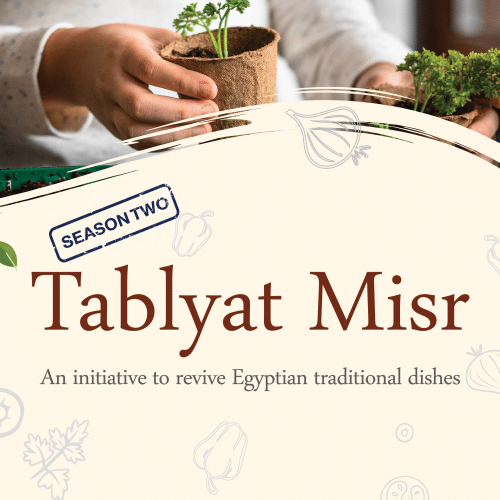
The Launching of Tabliyt Misr Season Two 15th of February 2024
During the second season, Tabliyet Misr initiative aims to establish the sustainability concept, and combat waste in Egyptian cuisine, to better confront climate change through different agricultural seasons. One of the most important goals of the initiative is to educate, encourage and empower people to grow their own food, as one of the most important health, economic and social pillars of Egyptian cuisine
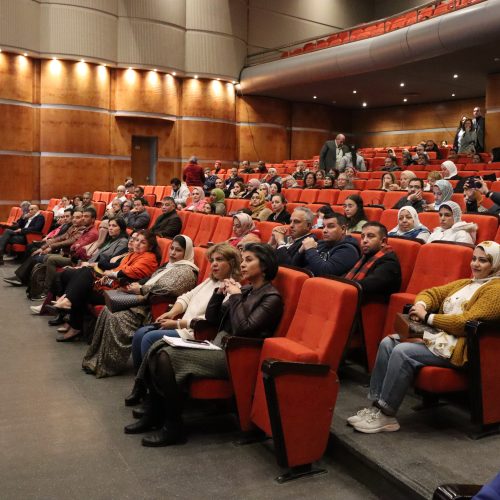
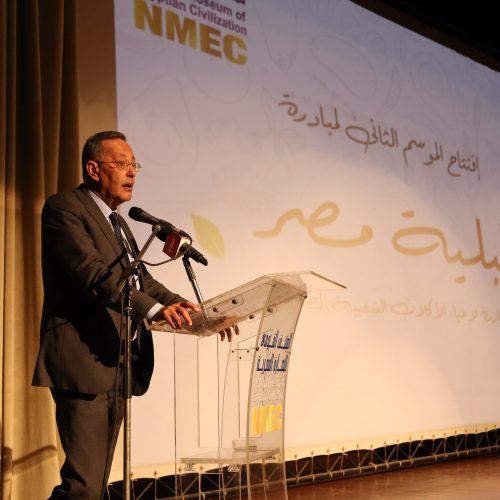
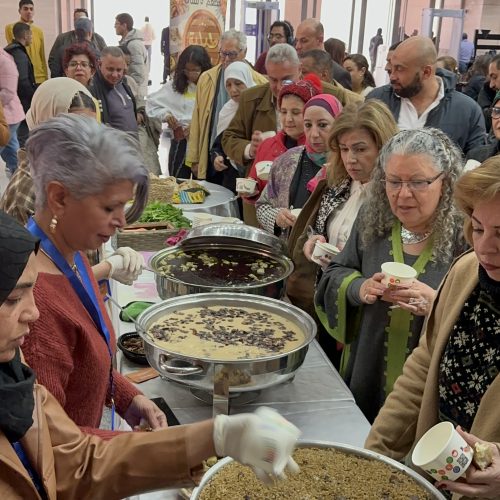
On February 15, 2024, NMEC hosted a three-week temporary exhibition called “On the Tabliya” in honor of Egyptian cuisine, which is among the richest and most ancient in history, to commemorate the start of the second season of the “Tabliyat Misr” initiative. About seventy objects, many of which had never been on display before, represented Egypt’s culinary culture from the Old Kingdom through the Modern Era.
A depiction of an offering table from the Old Kingdom, as well as real food from ancient Egypt, including meat and grilled birds, bread, and fruit, were all on display in the exhibition, along with several models of tableware and kitchen tools.
In the end, a real Tabliya was constructed to imitate rural families’ dining halls and convey the Egyptian belief that a family gathering around the Tabliya symbolizes harmony and cohesiveness.
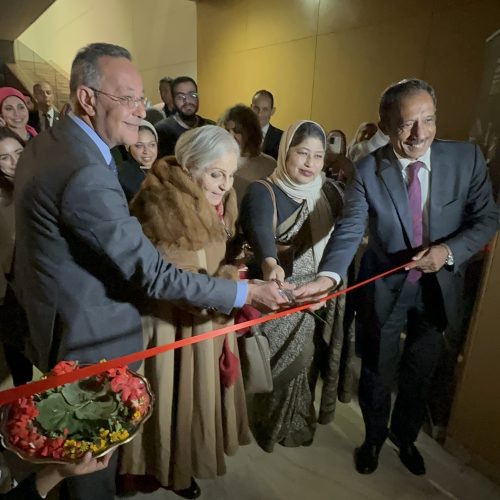
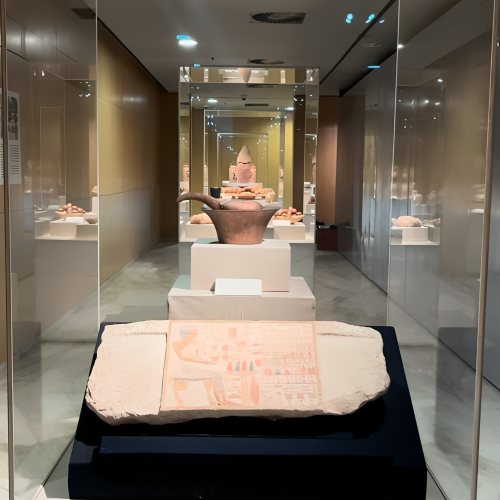
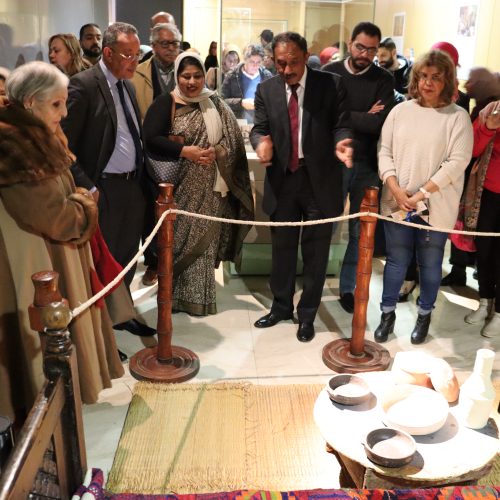
Most housewives dispose of leftover food, especially after large gatherings; however, artist Taghreed Youssef repurposes these remains, such as egg shells, pistachio shells, clam shells, legumes of all kinds, olive seeds, date pits, and much more, into artistic pieces with an ancient Egyptian inspiration.
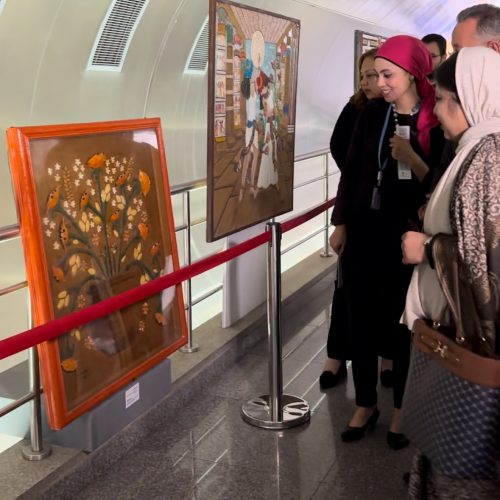
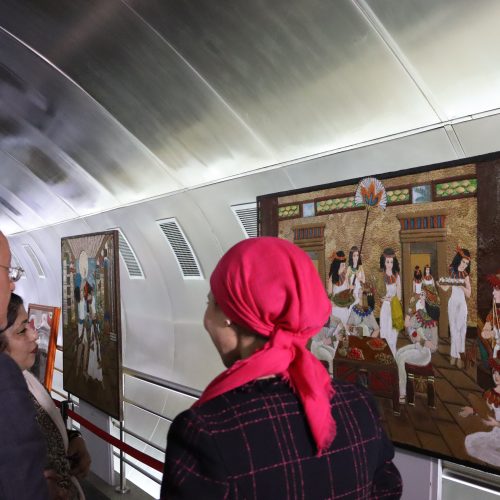
In light of global warming and the search for alternative resources, solar cooking is an economical way that is more sustainable. So, this project «Cooking Sunshine» depends on visiting the different cities in search of recipes that depend on sunshine in its cooking process whether by fermenting, preserving or drying, and documentery the recipes through different artistic media to revive traditional recipes.
In order to raise community knowledge about waste reduction and to provide safe, healthy food, these discussion circles explore the sustainability of Egyptian cuisine. They also include home gardening techniques and how to preserve and store food according to season.
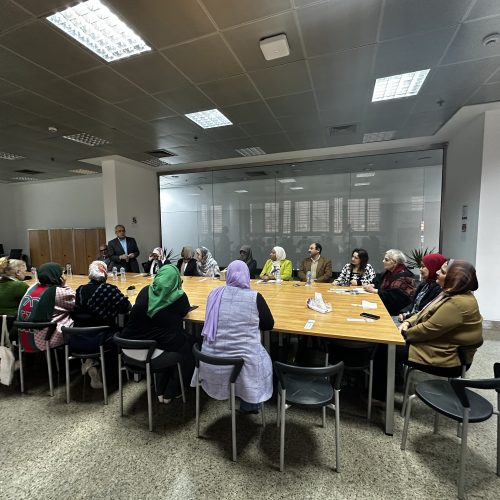
NMEC launched the first of its interactive discussion sessions entitled “Grow Your Food”, as part of the “Tabliyet Misr” initiative’s second season to revive Egyptian popular dishes. The sessions are held in the museum’s library and via online live streaming to raise awareness and protect the heritage of Egyptian food throughout history.
The participants witnessed a discussion session moderated by Prof. Dr. Hassan Abu Bakr, Professor of Organic Agriculture and Biological Control at the Faculty of Agriculture, Cairo University, in the presence of a group of experts in the field of sustainability in Egyptian cuisine, including Dr. Mohamed Hassan, Dr. Saeed Shehata, and Dr. Ahmed Hawash from the Research Center. Agricultural and Professor Shahira Mahrez, a researcher in the field of heritage and traditional fashion, as well as a group of scholars and researchers from universities and lovers of Egyptian heritage and those interested in it.
The museum is also keen to discuss vertical, aerobic and hydroponic farming methods, and methods and methods of farming without soil on the roofs of buildings, schools, youth centers and factories. Pictures of actual projects for these models were also presented, with suggestions for implementing these ideas. A dedicated area in the NMEC garden will act as a practical and applied model for the outcomes of the sessions.
The Young Egyptian Chef presents traditional foods in a simple and practical way to children and referring to traditions related to food, whether in song or popular proverbs, also displaying the different food culture related to the regions, villages, as well as those related to celebrations, seasons, holidays, and harvest seasons.
Furthermore, the activities and emphasize the importance of family bonding and gathering around the Egyptian Tabliya which supports the idea of preserving the link between the past and the present. It also discusses the quest to document grandmothers’ foods through the store of memories with home-cooked taste. The Young Chef is considered the easiest way to preserve and document the food heritage, through engaging the future generations and empowering them to learn to cook local food. This was implemented in partnership with SADKO Group.
The chickpea legume, sometimes known as Halbessa, which originated in West Asia and the Mediterranean, is shaped like the head of a falcon, or “Horus.” It comes in two forms and is one of the earliest meals ever made. The first is the green, which is called “malanah” and is eaten during Easter. Another version is called “Halbasa,” which is a warm, spicy drink made by boiling chickpeas in water with spicy tomato juice and usually some lemon juice added for flavor. It is a well-liked dish that street vendors sell along the Nile Corniche.
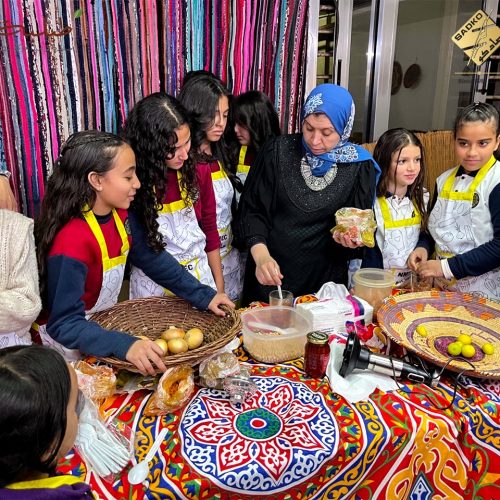
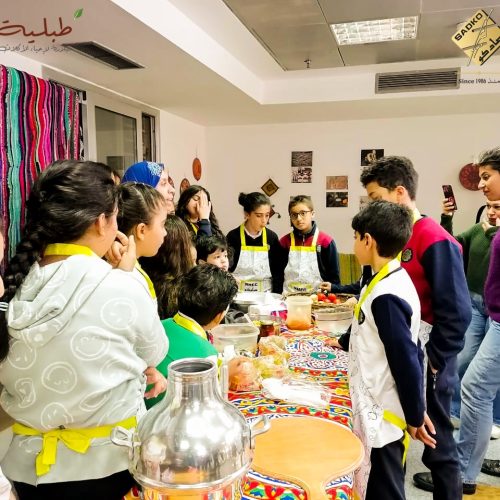
Umm Ali is the second wife of Izz al-Din Aybak, the first of the Mamluk Sultans, after his first wife Shajarat al-Durr. From his second wife he had his son Ali, Umm Ali. Shajarat al-Durr became angry and killed the sultan. Umm Ali decided to plot against so Ali, can become a sultan over the country, and “Umm Ali” decided to mix the flour, sugar, ghee, and chips “Umm Ali’s ingredients” and distribute them on the occasion of Shajarat al-Durr’s death and the ruling of her son, “Ali,” as sultan over the country, and from here came the name “Umm Ali.
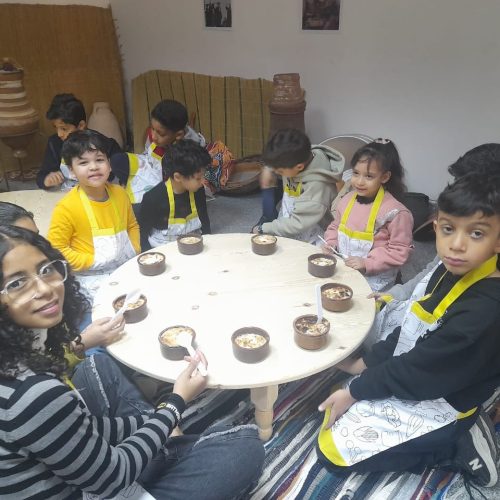
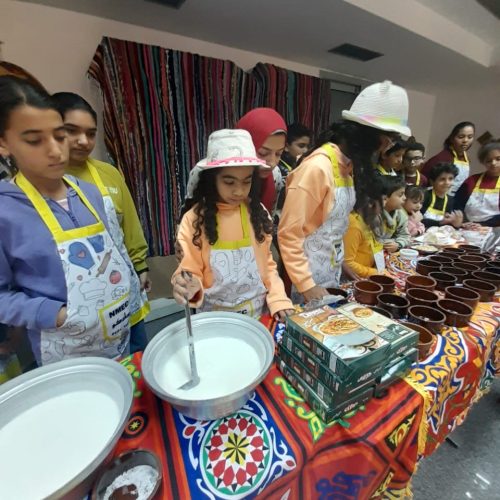
Learn, cook, and taste besara and sprouted fava beans in a workshop entitled “Sprout and Besara” as part of the Little Egyptian Chef’s workshops at NMEC as part of the activities of the second season of the Tabliyet Misr initiative, which are popular foods with Egyptian roots that give the body warmth and energy, especially in the winter.
